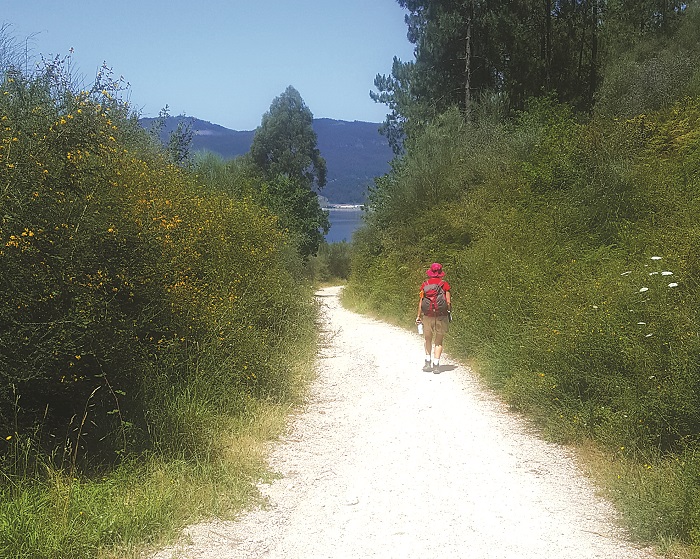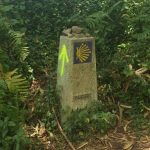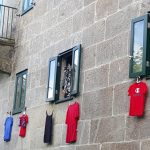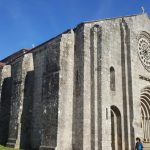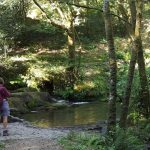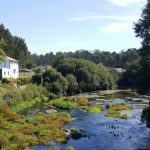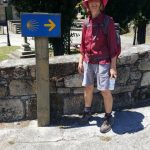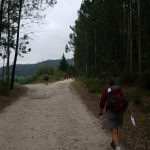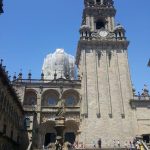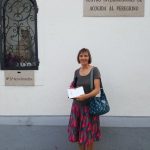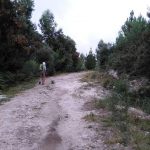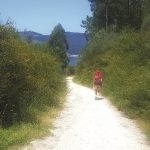Recently my wife and I walked part of the Camino, The Way, to the Spanish city of Santiago de Compostela; a city which has been destination for pilgrims for almost a thousand years. We walked for a week along the Portuguese Camino – long enough to get blisters, sunburn and be very grateful we arrived safely in Santiago.
My reflective task for the journey was to consider what was it like being a pilgrim, and what that means for our church as pilgrim people.
When one walks the Camino, the goal – Santiago – draws you forward. The intermediate goals of where you will get to that day encourage you to continue. The aches and stiffness and the trials of the journey are put to one side as you imagine what completing the pilgrimage will be like.
Does our vision of a goal, as the Basis of Union says – of the coming reconciliation and renewal which is the end in view for the whole creation, Christ’s beginning of the kingdom of heaven – actually draw us forward? Or are we more occupied with the setbacks and difficulties of the present moment (all those blisters and aches)?
The goal draws you forward – but so does the companionship on the journey, and the encouragement of strangers and outsiders.
There is a fellowship of pilgrims. One relates easily with complete strangers, even through language and cultural barriers. Those in the towns and villages you walk through know you are a pilgrim and offer encouragement and support.
At one point on our journey we lost the path. We stood somewhat forlornly on the corner of a busy intersection pondering our pilgrim’s guide. Then several cars screeched to a halt (causing traffic chaos) and their drivers wildly
gesticulated – we could not speak Spanish – to show us the way to go.
People want to help pilgrims – and one can think people will also help the church as it endeavours with integrity to be Christ in the world. I think we doubt this goodwill, and only hear rejection and hostility. Also, do we sufficiently appreciate the diversity of all the pilgrims; and how that can energise and encourage?
Pilgrims travel as lightly as possible. One has to shed what we might regard as the comforts of life. This all focuses the mind as to what is important.
What do we actually need on this journey; what is essential?
All those possessions (buildings?), perhaps things from the past – will weigh one down, literally; perhaps even prevent you from attaining your goal. This means you have to be self-reliant – resilient even.
The Way wanders the highways and byways and is invariably a road-less-travelled – at least by the people in the towns and villages through which you pass. As pilgrims, the way we travel can seem very strange to others.
Are we as pilgrim people confident in ourselves and sure of the goal, that we may even venture in new, perhaps even uncharted ways? As pilgrims are always reminded – they are not alone, God goes with them.
When I began the Camino I wasn’t confident it would actually be anything more than a good hike in Spain. The goal many of my fellow pilgrims had: to venerate what are believed to be remains of St James himself – Santiago, the very name of one’s destination – sat awkwardly with me.
However, as it happened, the journey threw up unexpected opportunities to reflect on being a pilgrim, and what we the Uniting Church, a pilgrim people on the way, can be.
Being a pilgrim now actually means so much more. I would recommend it – but true, watch those blisters.
Rev Dr John Evans was the Uniting Church WA General Secretary from 2002–2007.
This is an edited version of a longer article originally printed in Crosslight, the publication of the Uniting Church Victoria/Tasmania.
Read the full article at crosslight.org.au/2017/09/17/walking-the-walk.
